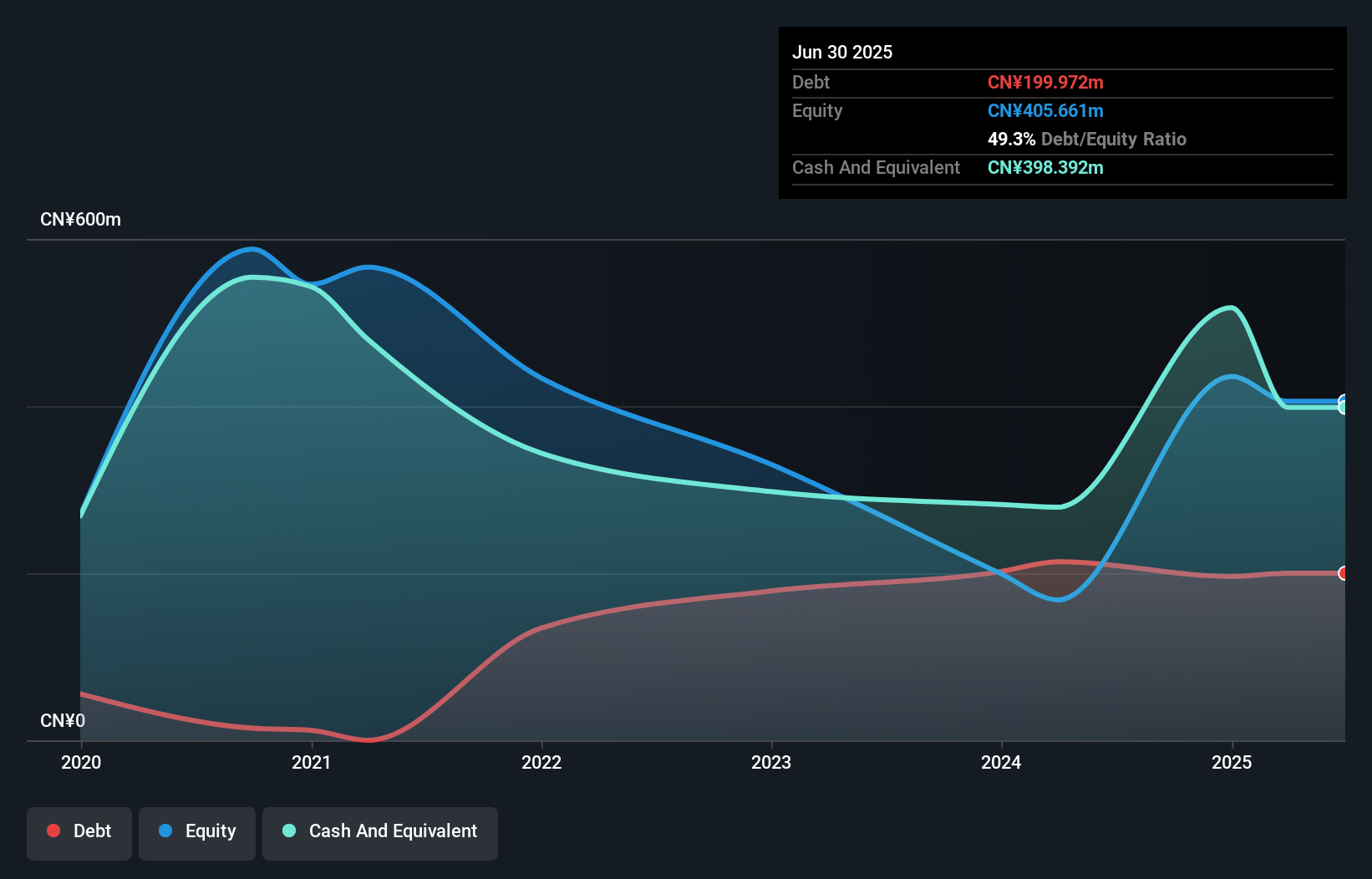David Iben put it well when he said, 'Volatility is not a risk we care about. What we care about is avoiding the permanent loss of capital.' It's only natural to consider a company's balance sheet when you examine how risky it is, since debt is often involved when a business collapses. Importantly, Qiniu Limited (HKG:2567) does carry debt. But the real question is whether this debt is making the company risky.
When Is Debt A Problem?
Debt is a tool to help businesses grow, but if a business is incapable of paying off its lenders, then it exists at their mercy. Part and parcel of capitalism is the process of 'creative destruction' where failed businesses are mercilessly liquidated by their bankers. However, a more frequent (but still costly) occurrence is where a company must issue shares at bargain-basement prices, permanently diluting shareholders, just to shore up its balance sheet. Having said that, the most common situation is where a company manages its debt reasonably well - and to its own advantage. The first thing to do when considering how much debt a business uses is to look at its cash and debt together.
What Is Qiniu's Net Debt?
You can click the graphic below for the historical numbers, but it shows that Qiniu had CN¥200.0m of debt in June 2025, down from CN¥213.8m, one year before. However, its balance sheet shows it holds CN¥398.4m in cash, so it actually has CN¥198.4m net cash.

How Healthy Is Qiniu's Balance Sheet?
Zooming in on the latest balance sheet data, we can see that Qiniu had liabilities of CN¥662.5m due within 12 months and liabilities of CN¥10.9m due beyond that. Offsetting this, it had CN¥398.4m in cash and CN¥457.6m in receivables that were due within 12 months. So it actually has CN¥182.7m more liquid assets than total liabilities.
This short term liquidity is a sign that Qiniu could probably pay off its debt with ease, as its balance sheet is far from stretched. Succinctly put, Qiniu boasts net cash, so it's fair to say it does not have a heavy debt load! There's no doubt that we learn most about debt from the balance sheet. But ultimately the future profitability of the business will decide if Qiniu can strengthen its balance sheet over time. So if you want to see what the professionals think, you might find this free report on analyst profit forecasts to be interesting.
View our latest analysis for Qiniu
In the last year Qiniu wasn't profitable at an EBIT level, but managed to grow its revenue by 9.9%, to CN¥1.6b. We usually like to see faster growth from unprofitable companies, but each to their own.
So How Risky Is Qiniu?
By their very nature companies that are losing money are more risky than those with a long history of profitability. And in the last year Qiniu had an earnings before interest and tax (EBIT) loss, truth be told. Indeed, in that time it burnt through CN¥124m of cash and made a loss of CN¥313m. While this does make the company a bit risky, it's important to remember it has net cash of CN¥198.4m. That kitty means the company can keep spending for growth for at least two years, at current rates. Overall, its balance sheet doesn't seem overly risky, at the moment, but we're always cautious until we see the positive free cash flow. There's no doubt that we learn most about debt from the balance sheet. But ultimately, every company can contain risks that exist outside of the balance sheet. To that end, you should be aware of the 1 warning sign we've spotted with Qiniu .
When all is said and done, sometimes its easier to focus on companies that don't even need debt. Readers can access a list of growth stocks with zero net debt 100% free, right now.
Valuation is complex, but we're here to simplify it.
Discover if Qiniu might be undervalued or overvalued with our detailed analysis, featuring fair value estimates, potential risks, dividends, insider trades, and its financial condition.
Access Free AnalysisHave feedback on this article? Concerned about the content? Get in touch with us directly. Alternatively, email editorial-team (at) simplywallst.com.
This article by Simply Wall St is general in nature. We provide commentary based on historical data and analyst forecasts only using an unbiased methodology and our articles are not intended to be financial advice. It does not constitute a recommendation to buy or sell any stock, and does not take account of your objectives, or your financial situation. We aim to bring you long-term focused analysis driven by fundamental data. Note that our analysis may not factor in the latest price-sensitive company announcements or qualitative material. Simply Wall St has no position in any stocks mentioned.
About SEHK:2567
Qiniu
Engages in the provision of Platform-as-a-Service that focuses on audiovisual cloud services to enterprise customers in Mainland China.
Excellent balance sheet and fair value.
Market Insights
Weekly Picks

Solutions by stc: 34% Upside in Saudi's Digital Transformation Leader


The AI Infrastructure Giant Grows Into Its Valuation
Recently Updated Narratives

Perdana Petroleum Berhad is a Zombie Business with a 27.34% Profit Margin and inflation adjusted revenue Business
Many trends acting at the same time


Engineered for Stability. Positioned for Growth.
Popular Narratives


MicroVision will explode future revenue by 380.37% with a vision towards success


NVDA: Expanding AI Demand Will Drive Major Data Center Investments Through 2026



